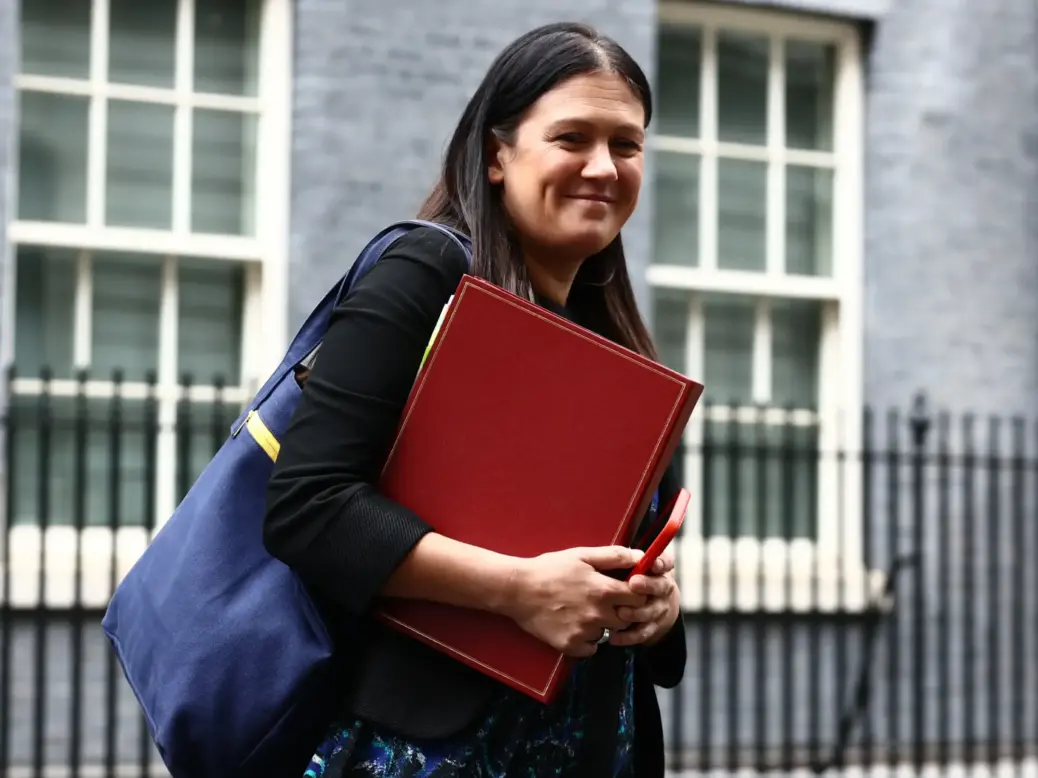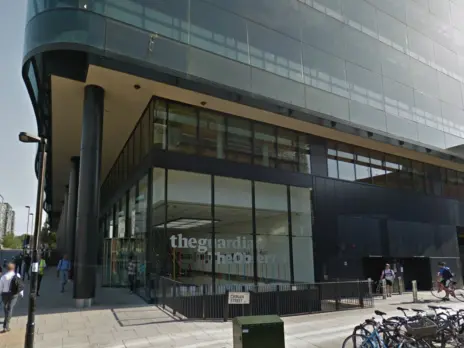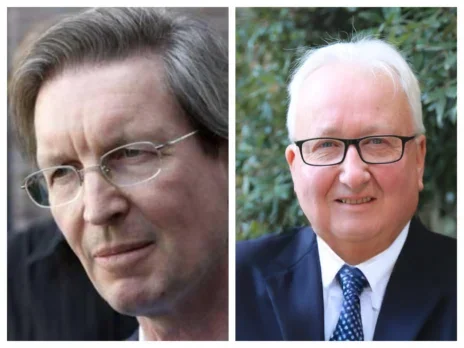
Lisa Nandy, the UK’s new culture secretary, has a history of backing the BBC licence fee and praising local journalism in her constituency.
But Nandy has said the BBC’s structure needs reform and that it should be “owned and directed by licence fee holders”.
The Labour manifesto stated only that the party will “work constructively with the BBC and our other public service broadcasters so they continue to inform, educate and entertain people, and support the creative economy by commissioning distinctively British content”.
It adds that “Conservative attacks on our globally respected institutions – universities, courts and the BBC – have undermined our soft power, traditionally a source of great strength, and diminished our influence”.
Nandy was named by new prime minister Sir Keir Starmer as culture secretary on Friday after his shadow culture secretary Thangam Debbonaire lost her seat.
Nandy, who has been the MP for Wigan since 2010, takes over from Conservative culture secretary Lucy Frazer and becomes the ninth person to hold the role in seven years.
She has familial connections to the media: her mother, Luise Nandy, was a current affairs TV producer at Granada best known for the long-running news review show What The Papers Say and the studio debate programme Gloves Off. And her stepfather was the well-respected investigative journalist Ray Fitzwalter, who was the longest-serving editor of Granada’s World In Action.
Lisa Nandy on the BBC licence fee
In 2020, when she was taking part in the Labour leadership election ultimately won by Starmer, Nandy wrote for Labour List about her views on how the BBC should evolve.
She wrote: “I would protect the licence fee and my government would not hold the BBC to ransom over appointments and funding… To maintain the BBC as an institution, it must be accountable to those who fund it – the British people.
“Instead of tokenistic consultation with the people who pay for it, and backroom negotiations with the government, the BBC should move to a model of being owned and directed by licence fee holders – who can help decide the trade-offs that the BBC must make to secure its future. This will mean a new structure for the BBC board that focuses on genuine public representation and participation – and greater commitments to transparency.”
At a leadership hustings, she explained further: “You’ve also got to actually ask yourself who owns the media and who runs it? I’d like to see us mutualise the BBC so that those decisions are taken by a wider group of people.
“I’d like to see us not just move the headquarters of Channel 4 and the BBC out of London but commissioning power too, so what gets made and what gets said is not determined by a small group of men behind a desk in Westminster and Whitehall.”
Being “mutualised” means being owned by, and run for the benefit of, members (in this case, licence fee payers) who would get greater power in key decision-making processes such as voting for the board. John Lewis and Co-op are two businesses run with a mutual model.
What else did Lisa Nandy say in her 2020 plan for media?
Also in her Labour List article about the media in 2020, Nandy criticised the Conservative government’s “Trumpian tactics”.
“The media is under attack like never before. As ministers boycott news channels at their choosing, the Prime Minister avoids press conferences in favour of pre-screened questions from the public, and Downing Street excludes selected journalists from briefings. All to sow the seeds of division and to undermine what should be the central job of our reporters: to get to the truth.”
She also highlighted the difficulties facing local journalism due to falling ad revenues.
“My Labour government would tax social media companies to create a fund to support local media and investigative journalism, building on the local democracy reporters scheme.”
Nandy’s own plans as Labour leader are unlikely to align exactly with Starmer’s but may give an indication of her priorities and views on the media industry.
Lisa Nandy on BBC devolution, attacks and Richard Sharp scandal
In 2015 Nandy praised the BBC for producing more of its output from outside London, saying in a Commons debate about devolution that its partial relocation to Media City in Salford had been “an absolutely stunning success for many of my constituents and the region.
“It has brought a completely fresh perspective to the way in which our public debate is conducted, because the guests and presenters now come from a much broader area than a small few miles around the capital.”
Seven years later she said of the move: “In the north-west of England, which I call home, we had the foresight to bring Media City to Salford. That was not just about the economic regeneration of one of the most disadvantaged areas of the country; it was also a key measure that started to rebalance the national debate that determined who had a voice and who got a place and was reflected in our national story.”
Nandy has made several other mentions of the BBC in Hansard, including to show support for its journalists under pressure around the world and press freedom in general.
In a September 2020 debate about the Belarus presidential elections, Nandy said: “The BBC Russian service is a key source of impartial information for the people of Belarus. I am very concerned about the potential for both funding cuts at the World Service and the targeting of its journalists.”
She asked then-foreign secretary Dominic Raab if he would “commit to ensuring that Foreign, Commonwealth and Development Office funding for this service is protected in any upcoming spending review? What is his Department doing to support BBC journalists and protect them from attacks on them and their families?”
Closer to home, in June 2021 she shared Labour’s “unequivocal condemnation of the targeting of a BBC journalist outside Parliament yesterday,” referring to a group of people verbally abusing Newsnight political editor Nicholas Watt. Six people were later convicted.
“Press freedom is under attack around the world; we must defend it here,” Nandy added.
Nandy has also previously weighed into the controversy surrounding former BBC chairman Richard Sharp, when questions emerged about the former Goldman Sachs banker’s role in then-prime minister Boris Johnson getting an £800,000 loan guarantee.
Asked by the BBC whether Sharp should resign, Nancy said he made “significant errors of judgment” and his position was “increasingly untenable”.
Local journalism: ‘Lifeblood of local democracy’
In 2018 Nandy was among the MPs to speak in the Commons after Johnston Press, then the fourth largest regional news publisher in the UK, went into administration.
The Yorkshire Post and Scotsman publisher was saved by a bondholder takeover that saw the investors wipe out more than 60% of the £220m debt owed to them. It has since been sold on to David Montgomery and formed the initial basis for National World.
Nandy said of Johnston Press: “We do not need a review to tell us that this is a story of pure greed. A handful of people have creamed off huge profits and left a debt-laden struggling company in the hands of hedge funds, with staff yet again paying the price. That hedge fund rescue package will be of little comfort to smaller titles like the Wigan Evening Post and the Wigan Observer that will not prove lucrative for asset strippers and face a very uncertain future at best.
“Will the Secretary of State intervene to ensure that long-term guarantees are provided for those smaller titles? They are not just the lifeblood of local democracy, as he rightly said; they are also the only talent pipeline left for young working-class people to break into journalism, and those young people are today left wondering what on earth the future holds for them.”
Six years earlier amid a round of cuts at Johnston Press Nandy raised concerns about local jobs: “There is often good coverage in my local newspaper, the Wigan Evening Post, but it is not always comfortable, as should be the case.
“As the Minister knows, Johnston Press, which recently announced huge losses, employs people in Wigan and elsewhere. Can he tell us whether he can get some assurances from the management of Johnston Press for staff who are obviously concerned about their future?”
Email pged@pressgazette.co.uk to point out mistakes, provide story tips or send in a letter for publication on our "Letters Page" blog




